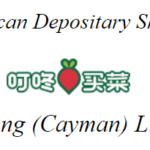I had a good interview with Arthur du Passage and Edouard de Mezerac of Artefact, a data consulting and digital marketing company. And I thought they had a really good vantage point for how AI / ML is being used on the ground in China. I’ve summarized my 3 take-aways from our discussion. An Introduction […]









